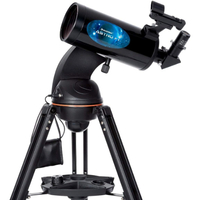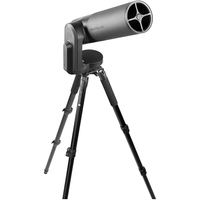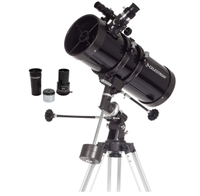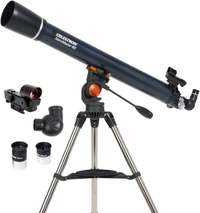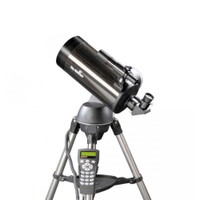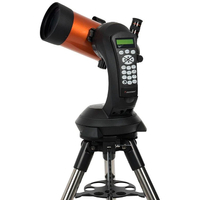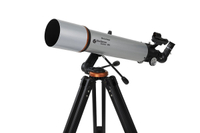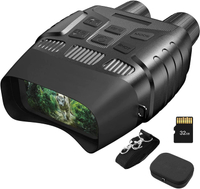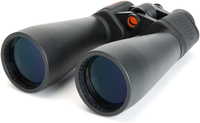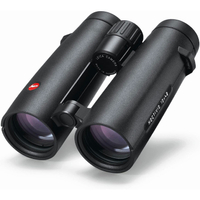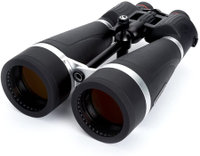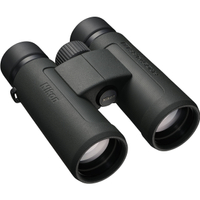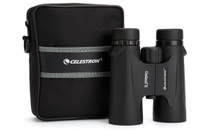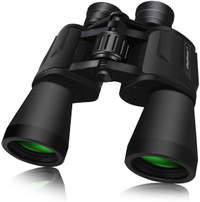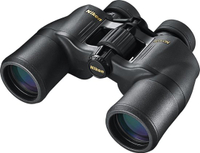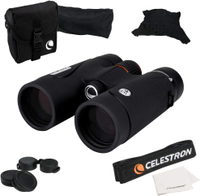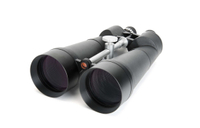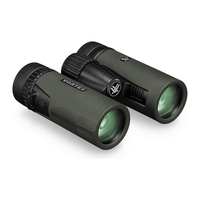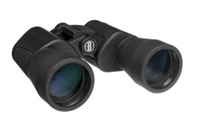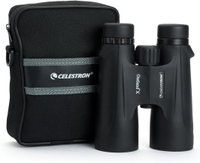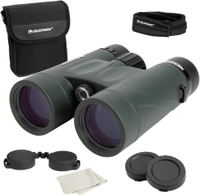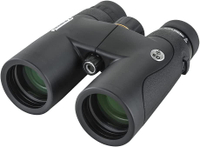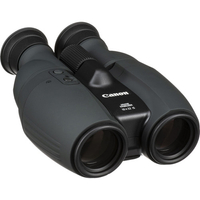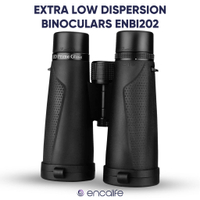Best Cyber Monday telescope and binoculars deals 2023
Here are our picks for the best telescope and binoculars deals you'll find for Cyber Monday.
The Black Friday and Cyber Monday sales are still going, and there are plenty of discounts on telescopes and binoculars to be had. Optics have been expensive over the past few years, due to supply issues and the rising costs of raw materials, so if you've been waiting to buy a new telescope, this sales period is the best time to do it.
We expect the discounts to expire at some point on Monday so, if you're still thinking about what to buy, it's time to narrow down the list of options. We've tested plenty of the binoculars and telescopes you'll find on this list, and most of them feature on our guides to the best telescopes for stargazing and the best binoculars for skywatching and wildlife spotting, so you can trust us when we say something is good value.
For each type of instrument, you need to consider the quality of the glass as much as the magnification, as clarity matters when you're observing long distances. And you really do get what you pay for. It may be daunting spending $100s, or even $1000s, on a telescope, but you'll usually get excellent quality with more expensive items.
For binoculars, consider the weight too, because if you're using them for any length of time, it'll have an impact on how steady you can hold them. Our advice is to consider a stand or tripod if you're going to be stationary for long periods of time.
- Best Buy: A great range of binocular and telescope deals
- Amazon: Big deals on binoculars and telescopes
- Walmart: Binoculars for all ages and deals on telescopes for stargazers
- B&H: Expert retailer specializing in optical hardware
Best Cyber Monday telescopes deals
Celestron Astro Fi 102: Was $529.95 Now $437.56 on Amazon.
Save over $90 on this superb, all-round telescope for enthusiasts. The glass optics are high-class Maksutov Cassegrain, with a 102mm aperture. It comes with two eye-pieces (10mm and 25mm), a finderscope, and there's an integrated smartphone adaptor that allows you to control settings via your mobile device. You're saving 17% off the MSRP, which is the lowest price we've seen through 2023, and it's the same price at B&H Photo.
Unistellar eVscope eQuinox: Was $2,999, now $1,599 on Amazon
Save $1,400 on this professional-level telescope. It won't be for everyone, and the discount is small relative to the overall price, but you get what you pay for. This telescope is significantly more powerful than most regular consumer models, and it comes with pre-programmed night sky targets that you can view by simply selecting them via the telescope's app. While it hasn't retailed for the full $3,000 throughout 2023, this is still a good saving.
Celestron PowerSeeker 127EQ: Was $219.95, now $132.58 on Amazon
Save 40% on this ideal entry-level telescope from Celestron. They're the biggest name in telescopes, and this is a great price for a first model if you're looking to enter the world of stargazing, or encourage a young person to adpot the hobby. This is the cheapest we've seen this model for the last couple of years.
Celestron AstroMaster 90AZ: Was $319.95, now $129.99 on Amazon
Save nearly $190 on a perfect telescope for beginners and younger astronomers. It features a sturdy stand, which isn't too heavy, and coated 90mm optics that will get you decent magnification without breaking the bank. While we've seen this cheaper in 2023, it's a good price for a Christmas gift right now.
Sky-Watcher Skymax 127 SynScan AZ GoTo: Was $880, now $698.44 on Amazon
Save $180 on this Sky-Watcher telescope. This one is another good choice for enthusiasts, and is probably one of the better picks for anyone who wants to travel with their equipment, thanks to the travel Alt-Az mount. It has a 127mm aperture, which gives excellent magnification, and the glass is high-grade Maksutov Cassegrain. We saw it cheaper in 2022, but this price is the lowest in 2023.
Celestron NexStar 4SE: Was $679, now $579 on B&H Photo
Save over $100 on this easy-to-use telescope from Celestron. This one is a great pick for beginners who want to spend money on a quality telescope, as it has all kinds of features for tracking night sky objects, but remains easy to set-up and pack away. You're saving $100 here, but it has been cheaper.
Celestron StarSense Explorer DX 102AZ: Was $611.95, $399.99 on Adorama
Take $210 off this refractor scope with a 102mm aperture. While the specs are pretty good, it's the Celestron StarSense Explorer app integration that makes this model stand out. Dock your phone, sync it with the telescope, and you get amazingly detailed star charts and information about what you're looking at.
Best Cyber Monday binoculars deals
Hexeum Night Vision Binoculars: was $298 now $109.98 at Amazon
These night vision binoculars from Hexeum are now a whopping 27% off at Amazon. These would be perfect outdoor activities, night hunting, patrol detection, security and surveillance, search & rescue, camping, and watching wildlife and scenery.
Celestron - SkyMaster Giant 15x70 Binoculars: was $119.95 now $84.79 at Amazon
These skywatching binoculars made by the trusted Celestron brand are now $31.99 off at Amazon. They boast a large aperture (70 mm), which make them perfect for low light-conditions and stargazing. You can also use them for terrestrial use, particularly over long distances. The BaK-4 prisms and multi-coated optics should deliver high-contrast, brilliantly colored views. Binoculars are water-resistant, have foldable eyecups and have a tripod adaptor.
Leica 10x42 Noctivid Prism Binoculars: Was $2710.95, now $2074.95 on Amazon
Save $629 on these ultra-premium binoculars. The -23% saving makes them the cheapest they've been in 3 years, and while $2000 is a lot for binoculars, they're worth every cent. This 10x42 packs in unrivalled quality glass in a small form factor, and while a little heavier than some rivals, they're not excessively so.
Celestron 20x80 SkyMaster Pro: was $416.95 now $289.00 at Adorama
If you’re serious about skywatching and in need of a set of binoculars, this could be the perfect deal. This set of Skymaster pros has all the bells and whistles: The large 80 mm objective lenses make for excellent stargazing at night, while the detachable RSR rail means you can add a red dot finderscope. Also, the nitrogen-purging mechanism prevents any fogging. And the “pro" label indicates all lenses are multi-coated with what Celestron calls its "proprietary XLT coating technology.” Those coatings and the BaK-4 prisms increase light transmission to deliver super-clear, high-contrast views.
Nikon PROSTAFF P3 10x42: Was $149.95, now $96.95 from Amazon
Get $53 off these versatile, budget-priced binoculars. You get a lot of value from the Nikon PROSTAFF range (they've got decent glass, and they're waterproof and fogproof), and these are nice and light, so perfect for wildlife watching.
Celestron Outland X 8x42 Binocular: was $99.95, now $56.85 at Amazon
You can now get over $30 off the Outland X 8x42 Binoculars at Amazon. Multi-coated optics deliver high-contrast views and BaK-4 glass will enhance the color of your view. Waterproof and fog proof, with protective rubber covering.
Celestron Outland X 10x42 Binocular: was $104.95, now $70.99 at Best Buy
You can now get $35 off the Outland X 10x42 Binoculars at Amazon. Twist-up eyecups allow for quick eye relief adjustment for a comfortable observing experience, while multicoated optics offer excellent contrast and clarity.
SkyGenius 10 x 50 Binoculars: was $58.99, now $39.99 at Amazon
The SkyGenius binoculars are great for both entry-level skywatching and nature exploration. The rubber armor means the binoculars are shock-resistant; and the twistable eyepieces can be adjusted for a perfect fit. Right now, the binoculars are 32% off at Amazon.
Nikon - ACULON A211 8x42 Binoculars: was $89.99, now $91.99 at Best Buy
A great buy for an outdoor enthusiast who is interested in both getting a little closer to nature and perhaps spying some craters on the moon. With a 420-foot field of view, you can view wide vistas. And the company boasts the lenses are arsenic- and lead-free. Plus, the rubber armor means they can get jostled without breaking.
Celestron TrailSeeker ED 8x42 Binoculars: was $379.95 now $263.59 at Amazon
Amazon have knocked over $115 off the Celestron TrailSeeker ED 8x42 binoculars, which feature premium ED (Extra-Low Dispersion) objective lenses, virtually eliminating chromatic aberration or color fringing.
Celestron TrailSeeker 8x42 Binoculars: was $299.95 now $259.95 on Amazon
The Celestron TrailSeeker binocular features 8x magnification and a wide field, and with a sturdy magnesium alloy frame that is lightweight and completely waterproof, it can be used in any weather.
Celestron SkyMaster 25x100 Binocular: was $499.95, now $316.00 at Amazon
Now 37% off, the SkyMaster 25x100 Binocular offers superb views of the night sky. Offering maximum brightness even in low-light conditions and at a long range, this binocular is great for terrestrial and astronomical sights. Comes with a carrying case.
Vortex Optics Diamondback HD Binoculars - was $259.99, now $209.99 at Adorama
Save $50 off these Vortex HD binoculars with 8x magnification and 32mm objective lenses. They're optimized with select glass elements to deliver exceptional resolution, and are waterproof and fog proof.
Bushnell Powerview 20x50 Binoculars - was $94.99, now $57.53 at Amazon
Amazon offers great optics for a competitive price and the Powerview 20x50 is no exception. Now at an even more competitive price with a further $39 off, the InstaFocus system inside the binocular's body offers a great view when locking onto wildlife subjects.
Celestron Outland X 10x50 Binocular: was $149.95 now $103.45 at Amazon
Save 31% on these waterproof and fog proof Celestron binoculars with 10x magnification, designed to meet the needs of every outdoor enthusiast.
Celestron Nature DX 8x42 Binoculars: was $169.95 now $100.00 at Amazon
Save 41% on these Celestron Nature DX 8x42 binoculars with 8x magnification and 42mm objective lenses. They feature a rubber-armored, polycarbonate housing and are waterproof and fog proof.
Celestron Nature DX ED 8x42 Binoculars: was $209.95 now $179.00 at Amazon
For just a little more than the regular Celestron Nature DX binoculars, these include extra-low dispersion (ED) objective lenses providing high resolution, High contrast images that are virtually free of optical defects like chromatic aberration and color fringing.
Canon 10x32 IS Image Stabilized Binoculars: was $1,099 now $899 at B&H Photo
While they may seem pricey, Canon have adapted the IS system from their line of EF lenses that detect and counter the appearance of hand-shake, so if excellent, steady image quality is what you're looking for, you can't go wrong here.
Encalife Extra Low Dispersion Binoculars: was $329.97 now $289.97 at Encalife
These durable binoculars from Encalife are now $40 off, featuring extra-low dispersion glass which prevents color fringing while providing high-resolution, high-contrast images. These binoculars are a great choice for concerts, birdwatching and outdoor activities.
How to choose your binoculars
Haven’t decided which pair of binoculars is right for you this Cyber Monday? Here are some things to consider: How do you plan to use the binoculars: bird and nature watching, or skywatching? Some binoculars are made for being out in nature when the sun is bright, for instance, or perhaps a rugged, shock-resistant coating is in order for a heavy-duty adventure. After you have that figured out, as well as your budget, here’s what to look for when scanning the stores for the best binoculars deals:
Magnification and lens size: The two numbers that describe binoculars refer to the magnification (first number) and lens diameter. For instance, a set of 10 x 52 binoculars is equipped with 10x magnification and 52 millimeter lenses. Both 8x and 10x magnification are considered optimal to prevent shaking and show a stable image nearby and far away. Lens size determines the amount of light let in. In low-light settings, you might want binoculars with lenses that are larger than 42 mm.
Field of view: The FOV indicates how wide an image can be seen through binoculars' lenses. The wider the FOV, the easier it will be to find what you’re looking for. However, there are trade-offs. The higher the magnification, the lower the FOV. According to Bushnell, companies measure FOV in feet at 1,000 yards, or the field of view you’d have if you were to measure it from 1,000 yards away.
Size/shape: Depending on where you plan to lug your binoculars, the physical size and weight can matter. Big and bulky might be fine for one adventurer, while another is interested in pocket-friendly binoculars that still feature powerful optics.
If you're ready for an outdoor adventure, keep checking back for more deals on binoculars for 2023.
How to choose your telescope
If this is your first time buying a telescope, or you're looking to upgrade from a beginner model, there are a few things you need to know before deciding which model to buy. If you're ever unsure, and want to know your options, don't forget to visit our best telescopes guide.
Aperture: The aperture of your telescope is usually measured in mm, and the higher the number, the wider the aperture. A wider aperture lets in more light, which is essential for night sky viewing. If you're a beginner, you're fine with around 90mm, but more advanced telescopes will have 120mm-300mm, which will allow you to pick out further away objects with greater clarity. Obviously, a wider aperture comes with higher weight and money costs.
Magnification: This is essentially a rating how far you can see while retaining a clear image. It's the focal length of your telescope multiplied by the magnification of your eyepiece. If you'd rather not calculate the numbers, as a rule of thumb, the maximum useful magnication of your telescope is about 50x the aperture, and the longer the magnification the better the image you'll get when viewing far-away objects. This is influenced by the eyepiece the telescope uses, so if you're looking to vary the types of object you're looking at, you should make sure you have a range of eye-pieces, like a 10mm and a 25mm.
Focal ratio: This is essentially the width of your field of view. A higher focal ratio number (represented as f/number) allows you to really narrow in to specific objects like planets, stars, and the moon. A lower focal ratio number gives a wider field of view, so is better for clusters like the Milky Way or the Horsehead Nebula. Obviously, the wider your focal ratio, the more light you're letting into your telescope, so the brighter and clearer the object your viewing is.
Weight and tripod: Don't forget that, especially if you live in an urban area, you will need to transport your telescope to dark sky spots in order to see the night sky clearly. Taking note of the weight, durability, and ease of collapsing of your tripod or mount is important.
Smart phone integration: Some of the more advanced telescopes can be controled via your smart phone, and many have in-built databases of celestial objects that you can pick out with the press of a button. If you struggle to actually find certain objects, these smart features will be worth the money.
Live Science newsletter
Stay up to date on the latest science news by signing up for our Essentials newsletter.

Andy is a content director at Future, and has been working in media and journalism for over 20 years. He currently oversees Live Science's sister site, Top Ten Reviews, while working on projects across a number of brands at Future Plc. Andy is also a tutor in Game Design at the National Film and TV School in the UK, a photographer, and a professional mentor. In his spare time you'll find Andy out with a camera in his hand, capturing urban and night-sky landscapes, or building Lego with his son.
Most Popular


By Emma Bryce
